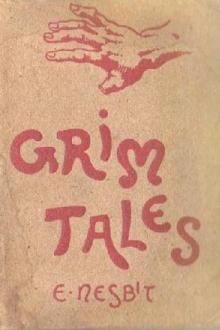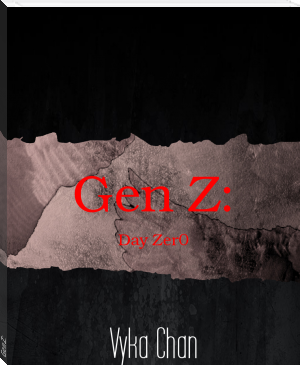Callisto 2.0, Susan English [i love reading .TXT] 📗

- Author: Susan English
- Performer: -
Book online «Callisto 2.0, Susan English [i love reading .TXT] 📗». Author Susan English
She stood with her arms hanging loosely at her sides, exuding confidence and power.
As conversations picked back up, the woman met my eyes, and, smiling broadly, made her way toward my table. I stood up quickly, almost knocking over my chair in my haste, clumsy and awkward. She didn’t seem to notice my discomfiture and offered me her hand. I took it, thankful that she couldn’t hear my heart beating rapidly in my chest.
Her handshake was firm yet gentle.
“Hello, Callisto,” she said, “I’m Diana.”
Her accent, as I had surmised during our phone call, was Latino—Colombian, most likely. After years of weekly physics colloquia given by scientists from all over the globe, I was adept at pegging peoples’ nationalities—It would be a fun skill at parties, if I ever attended one. In reality, it was just something that came naturally, almost automatically, a personal quirk.
“Nice to meet you.” My voice was not as strong as I would have liked. I cleared my throat. “Please, call me Calli.”
“Calli,” she repeated, pulling out the chair on the other side of the table.
I sat back down, slightly disoriented and lightheaded. The day before, I had been comfortable speaking with Diana on the phone, but seeing her in person, I felt out of my league.
Diana settled into the chair and glanced down at my open notebook. I resisted the instinctive urge to close it, not wanting her, or anyone else, for that matter, to see my work until it was perfectly polished.
“I haven’t seen anyone use a pen and paper in years,” she said, eyebrows raised.
“It’s old-fashioned, but holding a pen in my hand helps me think.” I picked up the pen and held it out to her, not quite meeting her eyes. “I’ve attached a stylus sensor so that my writings are automatically uploaded to my wrist computer.”
She took the pen from my outstretched hand, inspecting the little device with interest. Then she set it on the table and looked at me. “Undoubtedly you’re curious to learn more about the Foundation. But first, are you hungry?”
Even though the last thing on my mind was my stomach, I responded with a slight nod of my head.
“Good. Me too. You’re vegetarian, correct?”
It wasn’t uncommon to be a vegetarian, but it made me apprehensive that she knew.
I nodded again, suddenly aware of the medley of savory aromas emanating from the 7
kitchen, and my stomach growled in response. As a student, and later as a postdoc, I never had a lot of money, and eating out at a real restaurant, even a modest one, was generally outside of my budget. Did Diana know this, too?
“I suggest the quesadillas made with tofu. They are excellent.”
“Sounds good, thanks.”
Diana was wearing a perfectly tailored suit made from an exquisite, sky-blue material, and her fitted blouse accentuated her curvaceous body, its brilliant white a lovely contrast to her hazel skin tone.
Sitting across from this spectacular woman, I felt very unsophisticated. I had put on my best clothes: worn jeans, a little big for my petite, slim body, a gently used sweater purchased in a second-hand shop a few months back, and high-top sneakers. And my hair, well, I always cut it when it bothered me, using scissors from my desk, without a mirror. As a result, my red hair was a hodgepodge of different lengths, and usually there were some errant tufts sticking out here and there. Ordinarily, I never thought twice about my appearance, but being there with Diana, I was painfully conscious of my looks.
Diana signaled to the waitress who hurried over, two menus in one hand, computer tablet in the other, lips pursed, face haggard. I watched Diana, narrowing my eyes.
Coming from a working-class family, it was important for me that people employed in the service industry, such as waitstaff and hovercar mechanics like my father, were treated with respect. It was almost unconscious, my scrutiny of these interactions—a habit when meeting someone new, especially if that person was affluent.
“Hi, my dear,” said Diana softly, smiling as if she and the waitress shared a delightful secret.
The waitress laid the menus down on the table and was about to walk away when Diana touched her forearm.
“You look busy. Are you the only waitstaff today?”
The woman took a deep breath and let it out, blowing her bangs off her forehead.
Her eyes flicked toward the kitchen. “Yeah, the other waitress called in sick.”
“That puts a lot of pressure on you.”
“It’s the third time this week.” She cut her eyes toward the kitchen again, then lowered her voice. “I like Bev, she’s nice, and it’s not her fault, but—”
“Even so, you have to pick up the slack,” said Diana.
“Exactly.” The waitress’s shoulders visibly relaxed.
Diana scanned the room—almost all the tables were occupied. “From what I can see, everyone seems satisfied. You’re doing a marvelous job.”
The woman puffed out her chest ever so slightly, and she stood a little straighter.
Her lips twitched—a hint of a smile. “Thanks.”
“We’ll make it easy for you.” Diana looked at me as if she were including me in a grand conspiracy. “Two orders of the vegan quesadillas,” she gathered the two menus and held them out, “and,” she cocked her head, eyes meeting mine, “two glasses of your 8
delicious lemonade.” It was simultaneously a request to the waitress and a question for me.
I nodded.
“Thank you—” Diana leaned toward the waitress, reading her name tag, “Lynette.”
Lynette took the menus from Diana’s outstretched hand and Diana smiled, the skin around her eyes crinkling. It was a beautiful smile, disarming, and, with that twinkle in her eyes, I had the impression that we were all in this, whatever it was, together. We were a team, the three of us against the world.
“I’ll be right back with your drinks.” The waitress’s mouth curved upward, a genuine smile this time, one that reached her eyes. She turned and walked briskly to the kitchen, a spring in her step.
I followed the waitress’s departure with my eyes. She had felt it, too: the instant camaraderie, the intimacy, and, could it be, the love? How had Diana done it? She was magical.
Diana turned her smile to me, and I smiled in return. “Let’s get started,” she said.
I leaned forward in my chair, forearms resting on the table, waiting.
“We’re a small, private foundation, and our financial backers are quite wealthy, with a very progressive vision of the future. Money is not an issue—there is plenty of funding for research. As I mentioned during our call, we have the latest equipment, and industrial-grade 3D printers for anything that needs to be fabricated.”
I nodded, already imagining what it would mean to have access to a 3D printer of the caliber necessary for scientific investigation, and tried to curb my growing enthusiasm.
“We’re hoping you can join the team on our space-based lab, which orbits the Moon,” Diana said.
“The Moon?” That was unexpected. I tilted my head and leaned closer.
“Now I see that I’ve piqued your curiosity,” said Diana, laughing softly. But clearly, she already knew this—I was literally on the edge of my seat.
Lynette silently placed our drinks on the table, and Diana acknowledged her with a tip of her head, then turned her attention back to me. My eyes were glued to her face as she continued.
“Undoubtedly you are aware that the Moon is, by international treaty, a free territory.
Everyone, or more precisely, anyone who can afford to go to the Moon can build there and use its natural resources, as long as they comply with the rules and regulations dictated by the Collective.”
“Yes, of course.” I rested my chin on my hand.
“And since it takes less energy to escape from the lunar surface than the Earth’s, because of its weaker gravitational field, it was easier to transport the materials into orbit for construction, although we fabricated most of the parts on the Moon using 3D
printers—the whole ship is modular—and we assembled it in space, using bots.”
“Really?” They were using bots to construct entire space stations now? I opened my 9
mouth to speak, but she seemed to read my mind.
“The good thing about having the lab on a spacecraft, rather than on the Earth or the Moon, is that if we ever want to relocate, it will be a simple task. Relatively speaking, naturally.” She glanced up at the waitress, who had returned with our lunch.
“Enjoy your meal,” said Lynette, placing two plates loaded with steaming food on the table.
I ate mechanically, not even registering the taste, hanging on Diana’s every word.
“And how does the team manage in microgravity?” I asked between bites.
“The crew takes medication to protect against the harmful physiological effects of micro-g, and everyone is expected to spend at least an hour a day exercising in the gym, to avoid losing muscle mass and bone density.”
“Sure.”
“And, if there’s any experiment that requires a gravitational field, there’s always the Moon, or the Earth. We have a colony on the Moon and several labs here on Earth, in different locations. The focus of our Earth-based facilities is on developing technologies to help heal the planet, so the work here is more along the lines of practical applications. Our fundamental research laboratory is in space.”
I sat, mesmerized, as Diana expounded on the Foundation’s basic principles, and their vision for the future was like a breath of fresh air. Hope welled up inside of me, for the planet and for myself. Please let this be real!
We stood together at the counter as she passed her wrist computer under the scanner to pay the bill, including, as I saw on the scanner’s display screen, a generous tip. She turned to me. “We would like for you to visit the orbital lab next week, if you’re interested.”
“I would love that.” My heart hammered in my chest—I was ready to go right then.
“Excellent!” She gave me a dazzling smile. “I’ll send you the details later tonight.”
As we walked to the door, something niggled at the back of my mind. When we got outside, I turned to Diana. “Why me? I mean, why me, in





Comments (0)